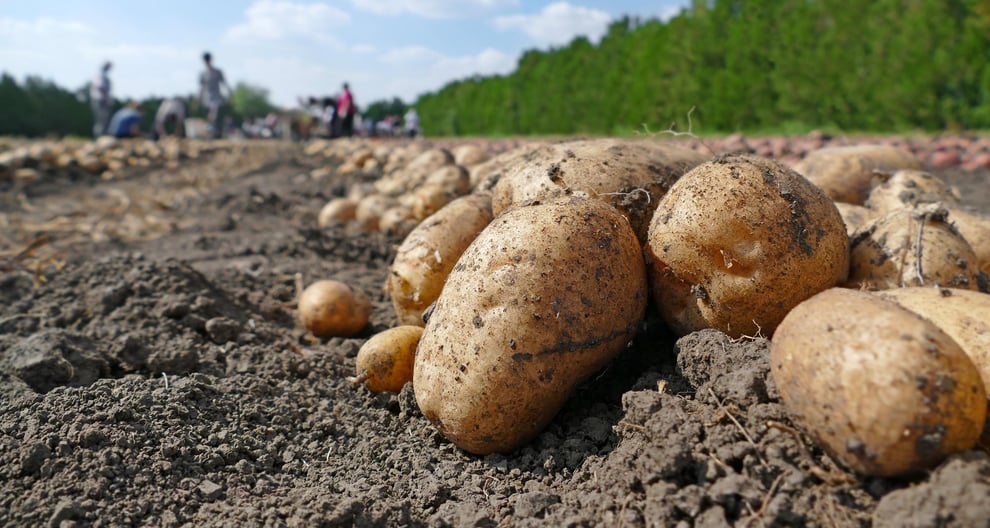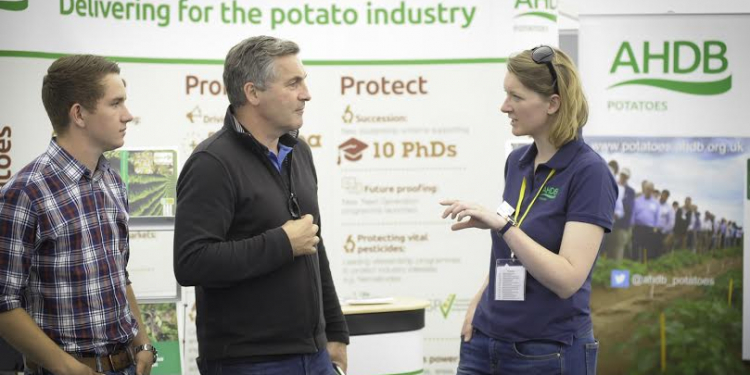The ballot paper in front of potato growers and vegetable producers does not use these words but this is the crux: do you want to continue paying a levy to the Agriculture and Horticulture Development Board in return for some research and generic advertising or do you want to cut your costs?

The ballots were triggered early last month when more than five per cent of the UK potato growers and large-scale horticultural producers supported moves to abolish their part of an organisation that one of the ballot ringleaders claimed had become “too bureaucratic”.
If potato growers decide they no longer want to pay the £42.62 per hectare levy, then the potato part of the AHDB will likely cease. And with it the research work, promotion and educational programmes that the levies support.
There are now fewer than 3,000 potato producers in the UK and each grower has one vote in the ballot which takes place later next month
This move follows a similar rebellion by a number of horticultural producers equally fed up with paying a levy in their sector where they say there is little direct benefit
Around about £6 million is raised annually by the potato levy and this is the total income for that section of AHDB. That pot of money may seem, to coin a phrase, “a lot of potatoes” but that amount of cash neither buys a lot of research in today’s market nor much in the way of promoting sales of tatties.
The rather tortuous roots of the AHDB go back to the 1930s when the Potato Marketing Board was established. The aim of the original body was to bring stability to a market that in some years had left growers facing horrendous losses.
As it turned out, the Second World War increased demand for home produced food and the organisation was put into abeyance until 1955 when it reappeared. This time with considerable statutary powers. Growers were allocated acreage quotas in order to keep supply and demand in balance. When this did not happen as planned, the Board would step in with a buying programme in order to take the surplus off the market. This involved spraying surplus stocks with a bright blue vegetable dye with the then very highly coloured tatties going as feed for livestock.
At that time, the vegetable dye also became very popular at “blackenings” and many a young man was married with his wedding finery covering a purple body.
The arrival of levies in the PMB era did not meet universal support and one grower, Jack Merricks stood as a Board member under the banner of Jack “Scrap the Board” Merricks. That was a mistake as he was elected and soon proved the saying that it is often more effective being outside the tent shouting abuse than being inside the tent.
The EU may not have objected to the vegetable dye but it did not like the fact the PMB could promote potato sales in the UK and that caused it to be transformed into the Potato Council with only research, information sharing and generic advertising left in its locker. Twenty years ago, the Potato Council gained a certain notoriety when it was described as “one of the most useless quangos in the country”.
In the next twist, the UK Government brought all the sector bodies, dairy, grain, red meat, potatoes and pork under the AHDB banner but this umbrella organisation seems to have drifted away from the producers who fund it.
With the tide of democracy now lapping around his knees, recently appointed AHDB chairman, Nicholas Saphir, has issued a plea for growers to talk to the organisation before ticking either box on the ballot paper.
“We would urge all potato growing and buying businesses to talk to us about our work and future plans through the town hall meetings or one to one with their regional knowledge exchange manager.”
But with potato producers and horticulturalists now having the option of opting out, it looks as if we could step back into a situation where research is limited to what individuals or agronomy groups take on board and where major retailers carry out promotional work.
While it remains to be seen what the outcome of the ballot will be, if it is a thumbs down, the only conclusion has to be that it had grown apart from the producers who funded it.







